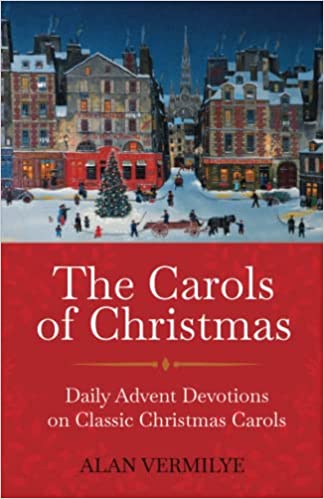I hope everyone had an enjoyable Thanksgiving. This Sunday is the first Sunday of Advent. For our Advent study this year we are reading through The Carols of Christmas by Alan Vermilye. The book takes us through four Christmas carols (one per week), providing us with a short daily devotional about the carol of the week. This week’s Christmas carol is O Holy Night.
In his introduction, Mr. Vermilye tells us that he chose the four carols because of the stories behind the carols themselves. This history is not only about the who, what, where, and why the carol was written but the context in which the carol has been sung over the years. In many ways, the history of “O Holy Night” reflects the story of Christmas itself.
The Composition:
The devotional on “O Holy Night” begins with its history in 1847. In that year, a carol was commissioned by Father Petitjean, the local village priest in Roquemaure, France (located just up the Rhone River from Avignon). The parish organ had recently been renovated and he wanted to celebrate with a new song. The local poet, Placide Cappeau, was an atheist and anti-cleric whom the priest talked into the assignment. The atheist poet then commissioned a Jewish composer from Paris to write the music.
The new carol was a hit and spread widely throughout France. Then its origins became known. And the religious leaders in France banned the carol. They were horrified that a poem written by an anti-cleric and sung to Jewish music would be heard within the churches of France.
The people of France, however, enjoyed the carol and appreciated its message. To them, the background of the carol was unimportant. Its message of the Incarnation and the salvation gained thereby was all that mattered. It was the common people that kept this carol alive during its rejection by the Church. Vox populi, vox Dei.
The Translation:
The unusual history of the carol continued as it made its way to the United States. In 1855, John Sullivan Dwight, discovered this carol to use in his “Journal of Music.” Dwight was a Unitarian minister and a transcendentalist, not exactly an orthodox Christian. He was an ardent abolitionist and saw the third verse of the carol as speaking directly to this movement. His translation of the carol is more dynamic than literal (particularly in the first verse) reflecting his more transcendental beliefs in the inherent goodness of the human soul as opposed to the Roam Catholic understanding of original sin.
The Carol as Christmas:
Within this history, we should be able to see the outline of the Christmas story itself. Like the carol, Jesus was born under unusual circumstances, with a hodge-podge of unusual actors. The Christmas story begins with the simple religious people of Mary and Joseph – not too unlike the village priest. The shepherds of first-century Palestine were socially marginalized, not unlike Jews in eighteen century Paris. There are atheists poets and magicians from the East. And, of course, there are the religious authorities, King Herod or French bishops, who seek to censor, suppress, and destroy.
In the carol’s spread from French into English, God chooses an unlikely person as is usually the case. Peter was uneducated and lacked sophistication (Acts 4:13) and Paul was unskilled in speaking (2 Cor. 10:10, 11:6). In its translator we find an ordained clergy unable to preach and someone, like Peter or Paul, outside of the mainstream religious tradition.
But despite these unusual circumstances, or maybe because of them, we have the Christmas story and one of our most beloved Christmas carols. Therefore, when you sing this carol, think about the many ways your Christian faith has been influenced not by articulate, well-educated, religious authorities but by those at the margins or even those, like Cappeau or the Magi, who are not part of our religious tradition at all.
Dinner is at 6. The menu is chicken and biscuits. Singing followed by a discussion is around 6:45. Hope to see you here.
O Holy night! The stars are brightly shining,
It is the night of our dear Savior’s birth;
Long lay the world in sin and error pining,
‘Til He appears and the soul felt its worth.
A thrill of hope the weary world rejoices,
For yonder breaks a new and glorious morn;
Fall on your knees; O hear the Angel voices!
O night divine, O night when Christ was born.
O night, O Holy night, O night divine!
Led by the light of Faith serenely beaming;
With glowing hearts by His cradle we stand:
So led by light of a star sweetly gleaming,
Here come the Wise Men from Orient land,
The King of kings lay thus in lowly manger,
In all our trials born to be our friend;
He knows our need, to our weakness is no stranger!
Behold your King; before Him lowly bend!
Behold your King; before Him lowly bend!
Truly He taught us to love one another;
His law is love and His Gospel is Peace;
Chains shall He break, for the slave is our brother,
And in His name, all oppression shall cease,
Sweet hymns of joy in grateful chorus raise we;
Let all within us Praise His Holy name!

